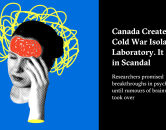Source Feed: Walrus
Author: Various Contributors
Publication Date: July 30, 2025 - 06:30
Summer Reading 2025
July 30, 2025

#sexy_author_bio_widget-2 {
display: none;
}
.sidebar-above-footer {
padding-top: 32px !important;
padding-bottom: 32px !important;
}
.hm-post-style-5.th-hero-container #hero_title_holder h1.entry-title{
font-family: "Georgia", serif !important;
font-size: 4.7rem !important;
font-weight: 100 !important;
font-style: italic;
padding-bottom: 0;
}
h3.summer22-hed {
text-align: center;
font-family: "Georgia", serif !important;
font-size: 2.5rem !important;
font-style: italic;
font-weight: 100 !important;
line-height: 1.2em;
margin-bottom:0;
margin-top:0;
}
p.summer22-byline {
text-align: center;
font-size: 18px;
}
Valley View Groc. and Conf., Gas Bar
The Green Suit
The Miraculous Return of Khalid from the Dead
And Then Came the Day
Your Hands
All Day I Look at Things
The post Summer Reading 2025 first appeared on The Walrus.
As a travelling physician in northern Ontario, Dannica Switzer is acutely aware of the health-care crisis in underserved communities. “It’s sad to see how much worse things can get,” said Switzer, who works as a locum, filling roles on a temporary basis in rural or remote areas.
July 31, 2025 - 06:37 | Sharif Hassan | The Globe and Mail
This spring, the Mark Carney government introduced Bill C-2. Formally dubbed the Strong Borders Act, the legislation gives the federal government and border officials broad new powers to search devices, collect data, and make immigration decisions without full parliamentary oversight. The bill also allows the government to suspend certain refugee protections during a declared emergency. Supporters argue it’s a necessary response to rising threats like smuggling and organized crime. Critics warn it opens the door to government overreach. What does Bill C-2 actually propose? And what does...
July 31, 2025 - 06:30 | Carmine Starnino | Walrus
During the first year of the Korean conflict, in 1950/51, senior military officials in Canada, Britain, and the United States became concerned about the development and use of so-called mind control techniques by communist forces. Authorities cited public denouncements of the conflict made by captured American soldiers as evidence that the Chinese had developed a method for brainwashing. With little or no evidence of physical coercion, Western authorities believed that communist forces had found a successful method for controlling the mind and inducing voluntary or genuine confessions....
July 31, 2025 - 06:29 | Matthew S. Wiseman | Walrus



Comments
Be the first to comment